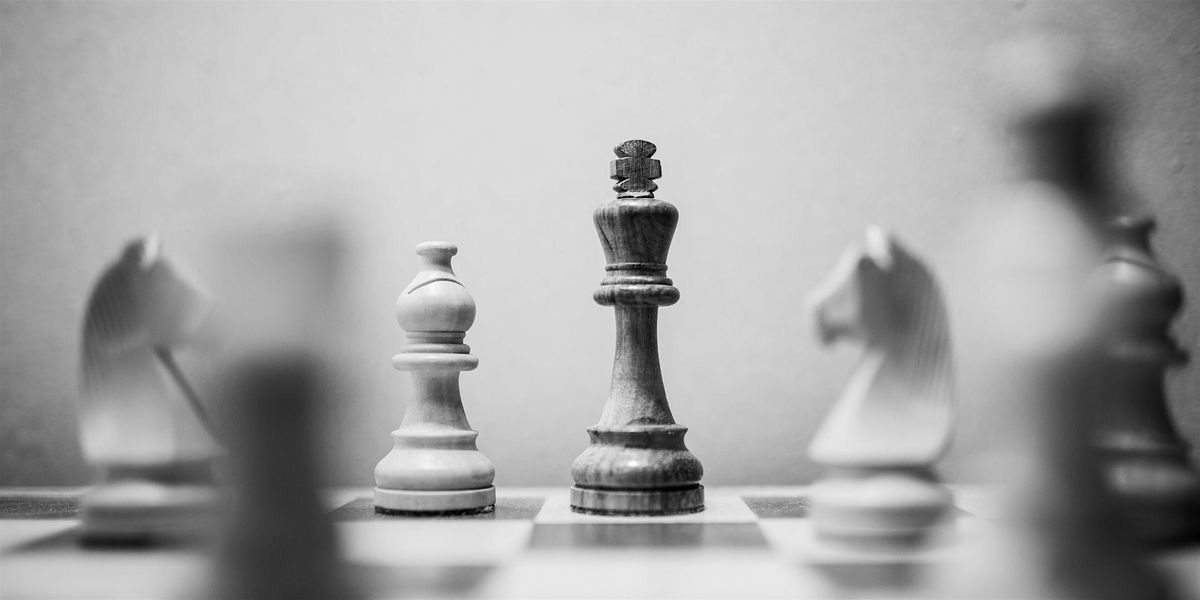Make Your Next Move Your Best Move Chess Day
Schedule
Sun Aug 14 2022 at 03:00 pm to Sun Dec 18 2022 at 06:00 pm
Location
Seward Community Co-op - Friendship Store | Minneapolis, MN

Enjoy food, fun, and prizes with friends, family, and community members.
Building relationships through the game of Chess!
About this Event
We are using Chess to promote strategic thinking, decision-making, problem-solving, planning, focus, and sense of judgment. From creating a safe environment to promoting critical and logical thinking, and developing a sense of sportsmanship through overcoming defeats and learning from mistakes. Building self-esteem, friendships, and a sense of empathy, the benefits are undeniable. When supported through coaching and discussions with peers, players can discuss problems, find alternative solutions, and improve their perseverance and good judgment.
Benefits of Chess:
1. Children are peaceful and patient
Psychologists claim that children who play are much more peaceful and patient in school and achieve better learning outcomes. When playing, kids learn to wait for the other player. It is an excellent way to develop patience. Research shows that chess encourages logical thinking, so we believe it would be great to integrate into a community, school, or program. They already have it in certain schools. Their professors claim that the benefits of learning chess are applicable in everyday life. There is also another kindergarten in Zadar (Croatia) where two-year-old kids have fun playing chess.
2. Children learn to think
Although chess is a game with firm rules, it allows countless combinations. Children develop divergent thinking; they discover that there could be several solutions to one problem and that some answers are better than others. It helps them to reach a specific goal in many different ways. Children who learn to think through chess logic will be more prone to seeking solutions instead of negative thinking when faced with a problem.
3. Being responsible for your actions
By playing chess, we learn that our behavior has consequences and that it is worth thinking about what they could be. Before you move the figures, you have to think about it because you know that every action has some reaction, and that can be said for any situation in your life.
4. Respect for all people
Children realize that every figure in chess has its value; that there are figures worth nine points and that there are figures worth one or five points. Children learn maths this way, but they also learn something more valuable. They realize that the pawn is just as precious in the overall game as the queen is. One pawn often decides the outcome of the game. Chess is a great way to understand that no one should be underestimated. A pawn can become a queen.
5. Developing the brain
Do smart people play chess or does chess makes people smarter? I would say both answers are correct. It has been proven that after only four months of playing chess, IQ can increase. Chess is the best gymnastics for the brain. Studies have shown that while playing chess, both the left and right side of the brain is equally active. Games like chess stimulate the growth of dendrites; the nerve cells that send signals from the neuronal cells of the brain. With more dendrites, neuronal communication within the brain improves and becomes faster. Chess players need to make decisions in seconds and react quickly.
6. Learning how to lose and win
When a child fails at a game, it is an excellent opportunity to talk to them about the significance of the defeat because that conversation will be valuable in life when faced with real losses. A child can learn not to give up after the defeat but to accept it, to learn through mistakes, and experience failure as a valuable experience. Competitions can be devastating to a child’s psyche. One should know how to remain dignified when defeated, not to walk away, and not to throw figures or shout or blame someone else. It is an opportunity to learn how to behave appropriately while winning or losing.
7. Developing discipline
Discipline is not something that children are born with. It is a set of habits that are adopted slowly through time. We can learn a lot about discipline from the pawn. That is a figure who can achieve a lot by moving in small steps. The same thing is with discipline in life. Children can achieve a lot by being persistent and consistent in their activities. Chess is a great way to develop discipline with children. They learn that there are rules and how to respect and apply them.
8. Better concentration
Children are exposed to many attractions and stimuli today, and their brain has a lot of work to deal with all this information. One of the consequences of this is distracting attention and lack of concentration. Children have to concentrate on a current position during the game and be focused on many details. Chess is great for developing a concentration that will be transferred to other areas of life.
9. Developing self-confidence
There is a close relationship between building a better self-image and playing chess. Children learn to think abstractly, make their own decisions, solve different problems and overcome many obstacles which make them feel proud of themselves and aware of their abilities. They realize that they can achieve goals in life by using their mind and intellectual skills.
10. Socialization
Chess is a game for two. It is beneficial for kids to play chess with their peers to develop new friendships and social life. Playing at tournaments and clubs allows interaction and communication between children. Chess playing is also a great way of giving kids the chance to get away from computer games and tv.
Where is it happening?
Seward Community Co-op - Friendship Store, 317 East 38th Street, Minneapolis, United StatesEvent Location & Nearby Stays:
USD 0.00
